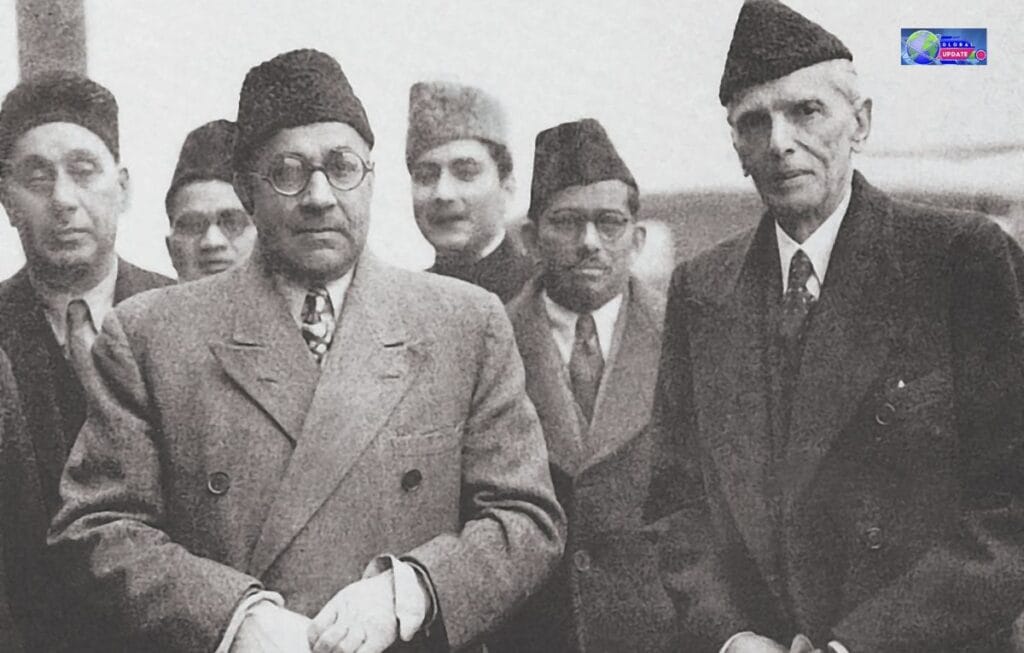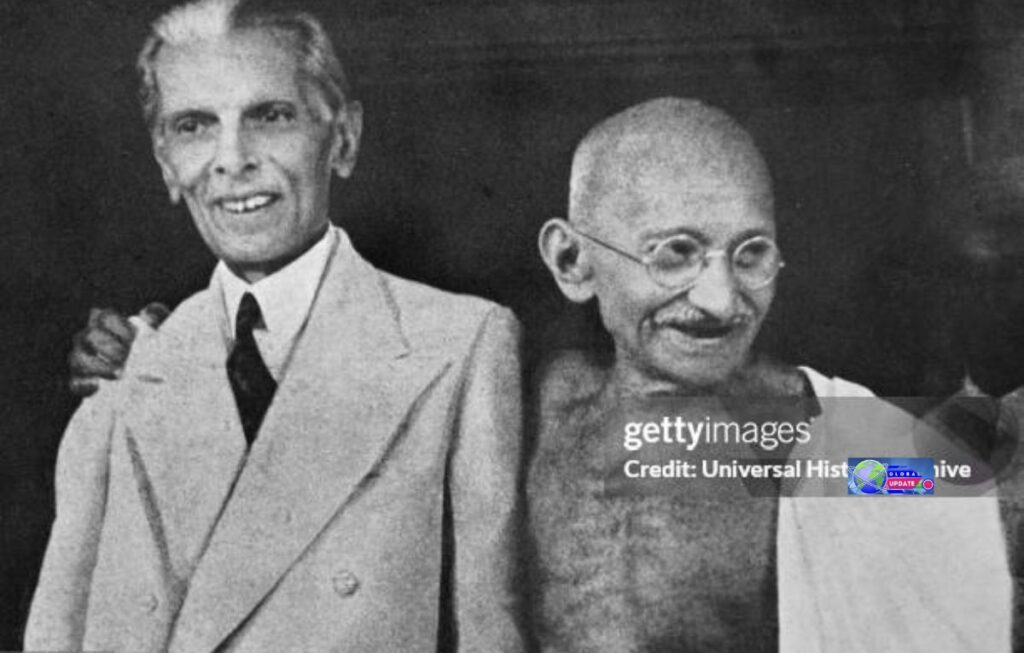Muhammad Ali Jinnah, the founder of Pakistan, struggled to unite a varied populace under a single national identity.
His ambitious goals established the groundwork for freedom, equality, and resilience, not just politics.
This analysis of Jinnah’s legacy examines his vision for Pakistan, his many struggles, and stagnation, and the lasting impact on the country.
Jinnah’s contributions illuminate Pakistan’s history and the values and principles that shape its destiny.
Join us as we explore a leader whose legacy lingers over the nation he founded.
History: Pakistan’s founding.
Complex political, social, and cultural processes in India led to Pakistan’s establishment.
Regional nationalism movements emerged in the late 19th and early 20th centuries as indigenous people asserted their identity against British colonial power.
The Indian National Congress, founded in 1885, initially sought greater autonomy within the British Empire but ultimately aimed for independence.
During these independence calls, a Muslim movement emerged to defend their rights and identity.
Leaders like Sir Syed Ahmed Khan stressed Hindu-Muslim socio-cultural divisions and advocated for separate political representation.
The All-India Muslim League, founded in 1906, was the primary voice of Muslims in India.
Former Indian National Congress member Muhammad Ali Jinnah became disillusioned with its policies and leadership.
Jinnah’s move from the Congress to the Muslim League made him the leading Muslim state supporter.
The 1930s and 1940s saw a growing clamour for Pakistan, culminating in the 1940 Lahore Resolution, which called for Muslim nations in northwestern and eastern India.
Intense talks, community unrest, and political manoeuvring marked the following years. These efforts culminated in India’s 1947 partition, which created Pakistan.
Millions were displaced, major migrations occurred, and communal bloodshed occurred throughout this divide. Jinnah’s leadership at this turbulent time helped stabilise the nascent nation.
Pakistan’s First Leader’s Vision and Ideology.
Democracy, justice, and equality were Jinnah’s goals for Pakistan.
As a leader, he wanted to preserve the rights of all citizens, regardless of religion or ethnicity.
Constitutional law and liberal democracy shaped Jinnah’s ideology.
He wanted a nation with the rule of law and transparent, accountable governance.
Jinnah’s writings and speeches support these values. In his August 11, 1947, Constituent Assembly address, Jinnah envisioned a Pakistan where religion would be a personal matter and the state would provide equal rights and opportunities for all.
He urged Pakistanis to put aside religious and ethnic divides and work together.
Jinnah’s concept was practical for nation-building in a diverse and diversified society.
Jinnah’s colonial leadership affected his ideas.
Recognised the need for self-determination and national direction.
His vision for Pakistan was closely tied to the struggle for decolonisation, where national identity was crucial.
The concepts of sovereignty and autonomy, which continue to resonate in Pakistan’s political discourse, were central to Jinnah’s leadership.

Key Leadership Challenges.
- Jinnah faced numerous internal and external challenges as Pakistan’s first leader.
- Establishing a stable and efficient government after the split was a significant issue.
- Infrastructure, governance, and institutions were complex to develop in Pakistan.
- Foreign migration caused humanitarian problems, with millions of refugees needing emergency aid and resettlement.
- Integrating diverse ethnic and linguistic groups was another challenge.
- Punjabis, Sindhis, Baloch, Pashtuns, and Bengalis lived in Pakistan.
Promoting national unity and equitable representation proved difficult. Jinnah’s efforts to promote inclusion and reduce regional inequities were crucial.
Pakistan also experienced economic issues that challenged its stability. The division of assets and resources left Pakistan financially weak after partition.
The new nation had to address these economic limits while developing its industries, agriculture, and trade.
Jinnah’s monetary policy preparations and international backing stabilised Pakistan’s economy in its early years.
Significant policies and initiatives.
Jinnah’s policies and actions affected Pakistan’s future. Establishing a strong administrative foundation was his priority.
Jinnah valued law-abiding institutions and good administration. It created an honest, accountable civil service, judiciary, and legislature.
Economic growth was another Jinnah priority. He supported agricultural, manufacturing, and trade programs to build a self-sufficient economy. Modernising agriculture, industrialising, and attracting foreign investment were his goals.
Jinnah recognised that economic stability was essential for Pakistan’s future; thus, his policies laid the groundwork for economic prosperity.
Jinnah promoted education and healthcare in social programs. He believed a well-educated and healthy citizenry was essential for national growth.
Jinnah promoted education, healthcare, and scientific research.
These activities aimed to enhance the quality of life for Pakistanis and promote creativity and progress.
Leadership in Nation-Building.
Leadership is crucial to nation-building, as exemplified by Jinnah’s tenure. As Pakistan’s founder, Jinnah’s vision and policies shaped its identity and direction.
His capacity to inspire and mobilise the populace helped build the nation. Pakistan’s political landscape remains shaped by Jinnah’s commitment to democracy, justice, and equality.
Jinnah led inclusively and pragmatically. He grasped the necessity of meeting Pakistanis’ different needs and aspirations.
Jinnah’s unity and solidarity activities helped build national identity. His emphasis on equitable representation and regional integration reduced tensions and gave all communities a sense of belonging in the new nation.
Jinnah also changed Pakistan’s international position.
His diplomatic attempts to gain approval for Pakistan were crucial to its worldwide standing. Other decolonising nations admired Jinnah’s leadership and the goal of a sovereign and autonomous Pakistan.
Jinnah’s leadership in nation-building emphasises the need for imaginative and inclusive administration.
Criticisms and Debates Over Their Tenure.
Jinnah was praised for his leadership, but it was also criticised and controversial. He was criticised for his handling of the divide and communal violence.
Some opponents say Jinnah’s insistence on a Muslim state exacerbated communal tensions after the division.
Mass migrations and violence during partition remain a tragedy for Pakistan and India.
Jinnah’s regional integration strategy is also criticised. Attempted to promote inclusivity, but regional disparities and ethnic tensions persisted.
Critics argue that Jinnah’s plans failed to address Pakistan’s complex concerns regarding the integration of its diverse populations.
The 1971 independence of East Pakistan (now Bangladesh) is often used to criticise Jinnah’s regional integration strategy.
Jinnah’s economic policies were also criticised. Despite his efforts to stabilise Pakistan’s economy, financial issues persisted.
Jinnah’s initiatives failed to overcome systemic barriers to economic progress, according to critics.
Foreign aid and delayed industrialisation were Jinnah’s economic failings.
These criticisms and conflicts illustrate the complexity of leadership in nation-building.
Long-term political impact in Pakistan.
Jinnah’s legacy has shaped Pakistan’s politics. His idea of a democratic and inclusive state guides national policy.
Jinnah’s structures and frameworks shaped Pakistan’s political system.
Rule of law, openness, and accountability dominate the country’s political discourse.
Jinnah’s support for regional integration and fair representation also shaped Pakistan’s government.
Ali’s policies help meet the current challenges of governing a varied and multicultural society.
Jinnah emphasised the importance of togetherness and solidarity, which are essential for national coherence.
Jinnah also affected Pakistan’s foreign policy. His concept of independence shapes Pakistan’s foreign policy.
Jinnah’s concept of self-determination and national sovereignty underpins Pakistan’s identity and global role.
Jinnah’s ideas and policies shaped Pakistan’s political scene, demonstrating their lasting impact.

Learning from Their Leadership.
Muhammad Ali Jinnah’s leadership has many lessons for modern administration and nation-building.
The lesson emphasises visionary and inclusive leadership. Pakistan’s prosperity was due to Jinnah’s vision and inspiration.
His emphasis on inclusivity and equal representation emphasises leaders’ obligation to address varied needs and goals.
Jinnah’s leadership taught resilience and adaptation.
Pakistan’s early struggles required a leader who could navigate complex and dynamic situations.
Jinnah’s pragmatic governance and unwavering convictions underscore the importance of resilience in the face of adversity.
Leaders must be flexible while sticking to their principles.
Jinnah’s term also emphasises the importance of institutions in nation-building.
Jinnah wanted Pakistan to have strong, transparent institutions.
These institutions supported good governance and legislation.
Strong institutions are essential for national stability and growth. Leaders must prioritise institution-building for sustainable governance.
Final thoughts: Legacy and future implications.
Looking back, Muhammad Ali Jinnah’s leadership shaped Pakistan’s history.
Jinnah’s goal of a democratic, inclusive, and sovereign Pakistan remains a guiding influence on politics.
His attempts to build institutions, unite Pakistan, and promote economic growth determined its future.
His legacy shows the importance of imaginative and inclusive governance in nation-building.
Jinnah’s leadership principles are pertinent as Pakistan navigates the 21st century. Jinnah’s democratic, just, and equitable values guide modern governance.
Managing a diverse and multicultural society, navigating economic constraints, and maintaining national sovereignty are ongoing challenges.
The Muhammad Ali Jinnah legacy illuminates these difficulties and provides a framework for solving them.
Jinnah’s legacy illuminates Pakistan’s history and principles, which continue to shape its future.
Muhammad Ali Jinnah’s legacy lingers throughout his homeland.
Pakistan’s founding leaders’ values continue to influence and guide the country, demonstrating the necessity of visionary and inclusive leadership in shaping a nation’s destiny.
Keep on Reading:
- Pakistani Passport: global ranking rises in 2025
- Shehbaz played a crucial role in the ceasefire agreement between Israel and Iran: Mohsin Naqvi



